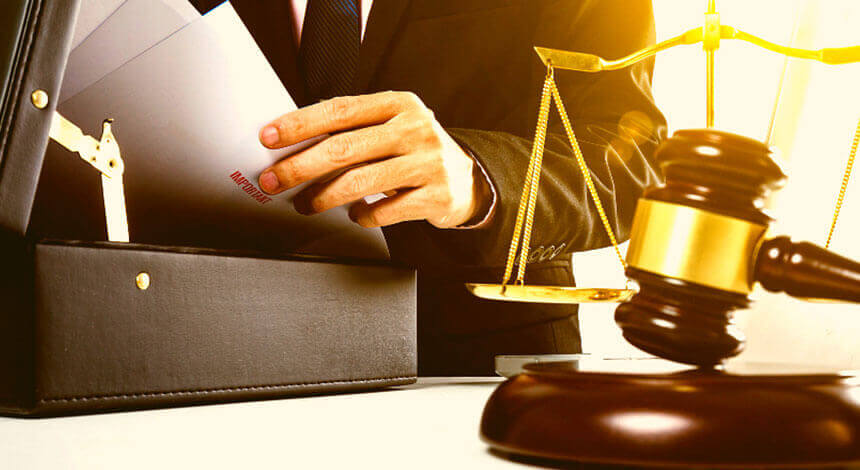- Justice Inn
- Criminal Law
- December 11, 2020
What is a Criminal Trial?
A criminal trial is a legal process where an accused person is formally charged with committing a crime and is given the opportunity to defend themselves in court. The trial determines whether the accused is guilty or not guilty of the charges brought against them. If found guilty, the court will impose a sentence based on the severity of the crime.
Criminal trials are governed by Pakistan’s Criminal Procedure Code (CrPC), and the process is carried out in either a Session Court (for serious offenses) or a Magistrate Court (for less serious offenses). The trial aims to ensure fairness, uphold justice, and protect the rights of the accused, all while considering the law and the facts presented in the case.
Stages of a Criminal Trial in Pakistan
Criminal trials in Pakistan follow a structured process. Below are the key stages of a typical criminal trial:
1. Filing of the Charge Sheet
The trial process begins when the police file a charge sheet in the relevant court after investigating the crime. The charge sheet outlines the accusations, evidence, and the crime committed. Based on this document, the court will decide whether there is enough evidence to proceed with the trial.
2. Arraignment and Framing of Charges
Once the charge sheet is filed, the accused is brought before the court for the arraignment. During this stage, the charges against the accused are formally read out. The accused has the opportunity to enter a plea, either guilty or not guilty. If the accused pleads guilty, the court may move to sentencing. If the plea is not guilty, the trial will proceed.
3. Presentation of Evidence by Prosecution
In the trial’s next phase, the prosecution (the state or the complainant) presents its case. The prosecution must prove beyond a reasonable doubt that the accused committed the crime. This involves presenting physical evidence, witness testimonies, expert reports, and other relevant materials. The accused or their lawyer will have the opportunity to cross-examine the witnesses and challenge the evidence.
4. Defense Case
After the prosecution has presented its evidence, the defense team has the right to present its case. The defense lawyer will attempt to prove that the accused is not guilty of the charges. This could involve presenting evidence, bringing in witnesses, or questioning the credibility of the prosecution’s case. The defense has the option to call witnesses or present counter-evidence to weaken the prosecution’s argument.
5. Cross-Examination
Cross-examination plays a critical role in criminal trials. During this phase, the lawyer representing the accused cross-examines the prosecution’s witnesses. This process is designed to highlight inconsistencies, doubts, or contradictions in the testimony provided by the prosecution witnesses, which may weaken their case.
6. Closing Arguments
Once both sides have presented their evidence and witnesses, they make their closing arguments. The prosecution will summarize its case and reiterate the evidence supporting the accused’s guilt. The defense will counter by emphasizing the weaknesses in the prosecution’s case and presenting reasons why the accused should be acquitted.
7. Judgment
After considering all the evidence, arguments, and testimonies, the court will deliver its judgment. If the court finds the accused guilty, it will impose a sentence, which could range from fines and probation to imprisonment or, in the most severe cases, the death penalty. If the court finds the accused not guilty, they will be acquitted, and the case will be closed.
8. Appeal
If either the prosecution or the defense is dissatisfied with the trial court’s verdict, they have the right to appeal the judgment to a higher court, such as the High Court or even the Supreme Court. An appeal may result in a new trial or a review of the case, which could lead to a reduction in sentence or even a reversal of the decision.


Rights of the Accused During a Criminal Trial
As an accused person in a criminal trial, you have specific legal rights that are meant to protect you throughout the process:
Right to a Fair Trial: The accused is entitled to a fair and impartial trial under the Constitution of Pakistan. This means they should be treated justly and not subjected to undue prejudice.
Right to Legal Representation: Every accused person has the right to hire a lawyer or request state-provided legal counsel to defend them during the trial.
Right to Remain Silent: The accused is not obligated to testify against themselves, and choosing to remain silent cannot be used against them.
Right to Appeal: If convicted, the accused has the right to appeal the verdict in a higher court.
Common Defenses in a Criminal Trial
In a criminal trial, the defense lawyer may present several types of defenses depending on the nature of the charges. Some common defenses include:
- Alibi: Claiming that the accused was elsewhere at the time of the crime.
- Self-defense: Arguing that the accused was protecting themselves or others from immediate harm.
- Lack of Intent: In some cases, the accused may argue that the crime was committed unintentionally or without malice.
- Mistaken Identity: Arguing that the accused was wrongly identified as the perpetrator of the crime.
Importance of Hiring a Skilled Criminal Lawyer
Navigating a criminal trial requires not only an understanding of legal procedures but also a deep knowledge of criminal law. Hiring a skilled criminal lawyer is essential to building a strong defense and safeguarding your rights. A competent lawyer will:
- Ensure that you understand the charges against you and the possible consequences.
- Collect and present crucial evidence to support your defense.
- Cross-examine witnesses and challenge the prosecution’s evidence effectively.
- Represent you at every stage of the trial and appeal process.
At Justice Inn, we have a team of experienced criminal defense lawyers who specialize in criminal trials in Pakistan. Whether you are facing charges for a minor offense or a serious crime, we are here to guide you through every step of the trial, ensuring that your case is handled with the attention and professionalism it deserves.
- Tags:
- Criminal Law






